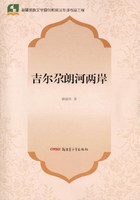1. The Human Scapegoat in Ancient Rome
WE are now prepared to notice the use of the human scapegoat in classical antiquity. Every year on the fourteenth of March a man clad in skins was led in procession through the streets of Rome, beaten with long white rods, and driven out of the city. He was called Mamurius Veturius, that is, the old Mars, and as the ceremony took place on the day preceding the first full moon of the old Roman year (which began on the first of March), the skin-clad man must have represented the Mars of the past year, who was driven out at the beginning of a new one. Now Mars was originally not a god of war but of vegetation. For it was to Mars that the Roman husbandman prayed for the prosperity of his corn and his vines, his fruit-trees and his copses; it was to Mars that the priestly college of the Arval Brothers, whose business it was to sacrifice for the growth of the crops, addressed their petitions almost exclusively; and it was to Mars, as we saw, that a horse was sacrificed in October to secure an abundant harvest. Moreover, it was to Mars, under his title of Mars of the woods (Mars Silvanus), that farmers offered sacrifice for the welfare of their cattle. We have already seen that cattle are commonly supposed to be under the special patronage of tree-gods. Once more, the consecration of the vernal month of March to Mars seems to point him out as the deity of the sprouting vegetation. Thus the Roman custom of expelling the old Mars at the beginning of the new year in spring is identical with the Slavonic custom of carrying out Death, if the view here taken of the latter custom is correct. The similarity of the Roman and Slavonic customs has been already remarked by scholars, who appear, however, to have taken Mamurius Veturius and the corresponding figures in the Slavonic ceremonies to be representatives of the old year rather than of the old god of vegetation. It is possible that ceremonies of this kind may have come to be thus interpreted in later times even by the people who practised them. But the personification of a period of time is too abstract an idea to be primitive. However, in the Roman, as in the Slavonic, ceremony, the representative of the god appears to have been treated not only as a deity of vegetation but also as a scapegoat.
His expulsion implies this; for there is no reason why the god of vegetation, as such, should be expelled the city. But it is otherwise if he is also a scapegoat; it then becomes necessary to drive him beyond the boundaries, that he may carry his sorrowful burden away to other lands. And, in fact, Mamurius Veturius appears to have been driven away to the land of the Oscans, the enemies of Rome.
2. The Human Scapegoat in Ancient Greece
THE ANCIENT Greeks were also familiar with the use of a human scapegoat. In Plutarch's native town of Chaeronea a ceremony of this kind was performed by the chief magistrate at the Town Hall, and by each householder at his own home. It was called the expulsion of hunger. A slave was beaten with rods of the agnus castus, and turned out of doors with the words, Out with hunger, and in with wealth and health. When Plutarch held the office of chief magistrate of his native town he performed this ceremony at the Town Hall, and he has recorded the discussion to which the custom afterwards gave rise.
But in civilised Greece the custom of the scapegoat took darker forms than the innocent rite over which the amiable and pious Plutarch presided. Whenever Marseilles, one of the busiest and most brilliant of Greek colonies, was ravaged by a plague, a man of the poorer classes used to offer himself as a scapegoat. For a whole year he was maintained at the public expense, being fed on choice and pure food. At the expiry of the year he was dressed in sacred garments, decked with holy branches, and led through the whole city, while prayers were uttered that all the evils of the people might fall on his head.
He was then cast out of the city or stoned to death by the people outside of the walls. The Athenians regularly maintained a number of degraded and useless beings at the public expense; and when any calamity, such as plague, drought, or famine, befell the city, they sacrificed two of these outcast scapegoats.
One of the victims was sacrificed for the men and the other for the women. The former wore round his neck a string of black, the latter a string of white figs. Sometimes, it seems, the victim slain on behalf of the women was a woman. They were led about the city and then sacrificed, apparently by being stoned to death outside the city. But such sacrifices were not confined to extraordinary occasions of public calamity; it appears that every year, at the festival of the Thargelia in May, two victims, one for the men and one for the women, were led out of Athens and stoned to death. The city of Abdera in Thrace was publicly purified once a year, and one of the burghers, set apart for the purpose, was stoned to death as a scapegoat or vicarious sacrifice for the life of all the others; six days before his execution he was excommunicated, in order that he alone might bear the sins of all the people.
From the Lover's Leap, a white bluff at the southern end of their island, the Leucadians used annually to hurl a criminal into the sea as a scapegoat.















